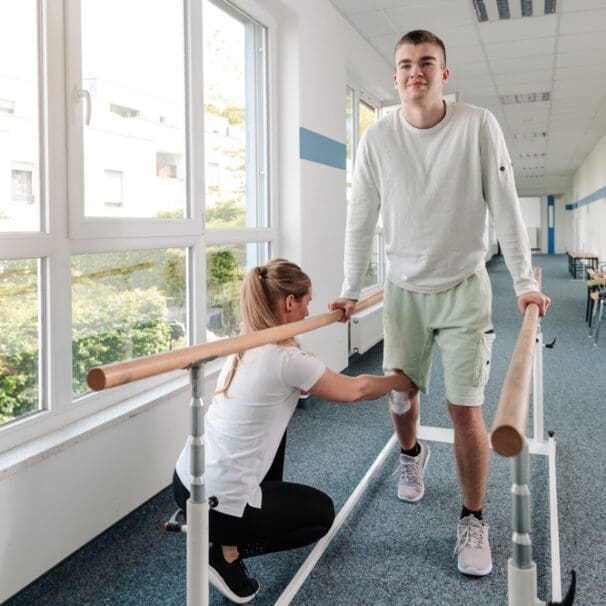HealthProviders DB is a comprehensive database of healthcare providers, including a complete directory of all Brain Injury Medicine Physiatrists.
Physical Medicine & Rehabilitation Healthcare Taxonomy Code 2081P0301X
As of today, the following are the total number of Brain Injury Medicine Physiatrists nationally, in your State, and near your location.
Select a State below to view the list by State. Additionally, you can narrow the list by city, among other options, from the Filter Panel, which you can open by clicking the vertical ellipses ⋮ in the upper right corner of the app.
Alaska – Alabama – Armed Forces Pacific – Arkansas – American Samoa – Arizona – California – Colorado – Connecticut – District of Columbia – Delaware – Florida – Federated States of Micronesia – Georgia – Guam – Hawaii – Iowa – Idaho – Illinois – Indiana – Kansas – Kentucky – Louisiana – Massachusetts – Maryland – Maine – Marshall Islands – Michigan – Minnesota – Missouri – Northern Mariana Islands – Mississippi – Montana – North Carolina – North Dakota – Nebraska – New Hampshire – New Jersey – New Mexico – Nevada – New York – Ohio – Oklahoma – Oregon – Pennsylvania – Puerto Rico – Palau – Rhode Island – South Carolina – South Dakota – Tennessee – Texas – Utah – Virginia – Virgin Islands – Vermont – Washington – Wisconsin – West Virginia – Wyoming
Medicare
The following are the total number of Brain Injury Medicine Physiatrists who accept Medicare in your State, the number who have opted out of Medicare, and the total number excluded from participation in Medicare nationwide.
The diagram below shows all the Brain Injury Medicine Physiatrists across the country, represented by blue bubbles. The larger the bubble, the greater the concentration of providers in that area. Red bubbles represent Medicare-excluded providers, with the larger bubbles indicating a higher percentage of excluded providers in that region. You can change the bubble size to be based on exclusions from the Size menu.
What do Brain Injury Medicine Physiatrists do?
Brain Injury Medicine Physical Medicine & Rehabilitation (PM&R) physicians diagnose, treat, and rehabilitate individuals with acquired brain injuries, focusing on restoring physical and cognitive function, managing related symptoms, and improving overall quality of life.
They lead interdisciplinary teams, coordinate care with other specialists, and prescribe therapies, medications, and procedures, such as botulinum toxin injections for spasticity, to help patients regain independence in daily activities.
What they do
Diagnosis and Evaluation: Thoroughly assessing a patient’s medical history, current symptoms, and functional limitations after a brain injury.
Treatment Planning: Developing individualized, comprehensive care plans to meet each patient’s unique needs and recovery goals.
Symptom Management: Prescribing medications for pain, spasticity, and other neurological issues.
Therapeutic Interventions: Coordinating with physical, occupational, and speech therapists to help patients improve movement, strength, and communication.
Procedures: Performing injections, such as Botox for spasticity, or ultrasound-guided injections for pain.
Nerve and Muscle Diagnostics: Utilizing nerve conduction studies and electromyography (EMG) to assess nerve and muscle function.
Cognitive and Psychological Support: Addressing cognitive, educational, and vocational consequences of brain injury, and coordinating with neuropsychologists.
Interdisciplinary Team Leadership: Directing and collaborating with a team of health care professionals, including neurologists, neurosurgeons, social workers, and rehabilitation nurses, to provide holistic care.
Return to Function: Guiding patients in regaining their ability to perform daily activities like dressing, bathing, and eating.
Specialization in Brain Injury Medicine
Their goal is to maximize a patient’s functional independence and quality of life after a brain injury.
These specialists focus on acquired brain injuries, which can result from trauma, stroke, or other causes.
They manage a wide range of related disorders, including problems with the nervous and musculoskeletal systems, as well as issues with bowel and bladder control.

